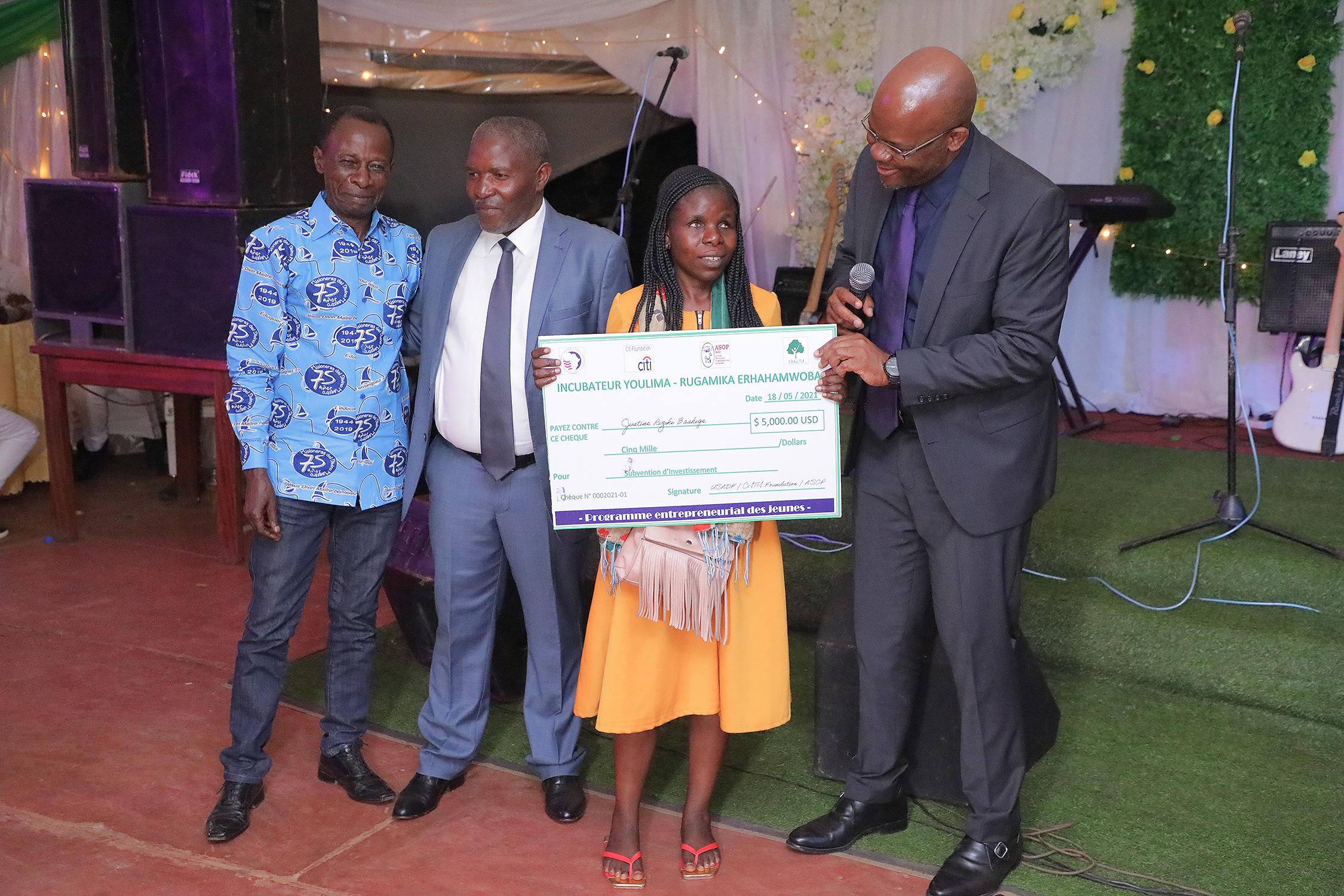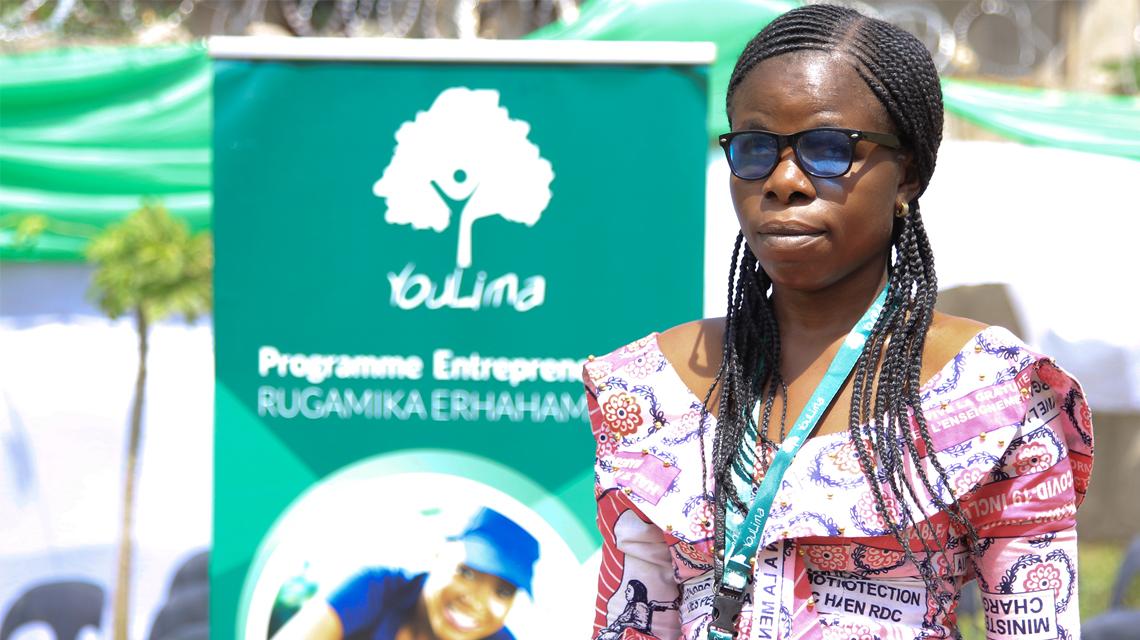International Day of Persons with Disabilities is celebrated every year on December 3rd, founded to mobilize support for critical issues relating to the inclusion of persons with disabilities. Today, we celebrate Justine Riziki Bashige. Among an inaugural cohort of 30 participants in the Youlima Youth Incubator Program in the Democratic Republic of the Congo (DRC), Bashige was one of 20 selected by the U.S. African Development Foundation (USADF) to receive financial and technical support to start a business. “Youlima” comes from the combination of the English and Swahili words youth and kulima, meaning “young people in agriculture,” promoting the professionalization of agriculture and the mastery of the entrepreneurial process by youth. With catalytic funding from Citi Foundation and support from USADF’s Local Technical Partner in the DRC, Action Social et d’Organisation Paysanne (ASOP), USADF created and launched the Youlima Youth Incubator to provide entrepreneurial training and create youth-centric opportunities that empower young people to develop income-generating and community-building projects.
Among the 30 youths, Bashige was one of five participants living with a disability. Losing her sight in childhood did not stop Bashige from continuing to pursue her studies, eventually obtaining a state diploma in general pedagogy and later a journalism degree from the Technical School of Journalism. After joining an association for blind women’s empowerment, she learned that many of the members could not read or write. It was there that she felt the initial desire to create a school at which blind people could have a chance to receive an education, learn marketable skills, and integrate into the professional world. With Bashige’s persistence and perseverance, Kivu-Braille was born.
Not only is her enterprise Kivu-Braille a center for both blind and sighted people to learn Braille writing, but it’s also a place for them to receive training on income-generating skills such as basketry, weaving, and raising livestock. By offering trainings for both blind and sighted individuals, Kivu-Braille provides its students with the necessary skills to achieve financial independence, enables them to integrate more fully into the professional world, and helps destigmatize disability in the local community.
In her own words, learn about Bashige’s motivations to empower people living with disabilities and create opportunities for prosperity in her community:
How did the Youlima Youth Incubator prepare you to start this project?
“For several years I was thinking about a project that would not only benefit me, but also the community. Thanks to the Youlima Youth Incubator, even with my disability I was welcomed like everyone else and given special attention. I was able to attend the different training courses and learn a lot. The Incubator supported me in acquiring legal documents for my business and in drafting my project and business plan. It also allowed me to have discussions and network with other entrepreneurs, putting us in touch.”
Tell us about the importance of schools such as Kivu-Braille for the blind community in the DRC. What was your motivation for launching the project?
“Schools like Kivu-Braille are of paramount importance to the blind community in the DRC because, too often, members of this community are marginalized and neglected. The first motivation to launch this project was the need to feel useful to my community and to set up a sustainable project: helping blind people’s voices be heard and enabling them to have a place in the community. We want to help people with this disability to read, write, express themselves in public speaking, and above all, to thrive. The school will not only benefit them by teaching new skills but will also act as a psychological treatment to help members of the blind community feel more useful in society. The lack of access to work for people with disabilities, even with intellectual backgrounds, has also motivated us to provide this training to people who do not have a disability. This project therefore aims to set up a prevention, treatment, and supervision system for the blind.”
What are your plans for Kivu-Braille in the future?
“In the future, Kivu-Braille intends to work with women and girls, blind or not, to engage in the production of baskets, handbags, and soaps. Through mentorship, Kivu-Braille hopes to create business opportunities. We would like to create an exhibition and sales area at the Youlima Youth Incubator so that our products are visible and accessible to everyone. Finally, we would like to extend this activity or project to other parts of South Kivu such as Uvira, Kalehe, Ijwi, and beyond.”



